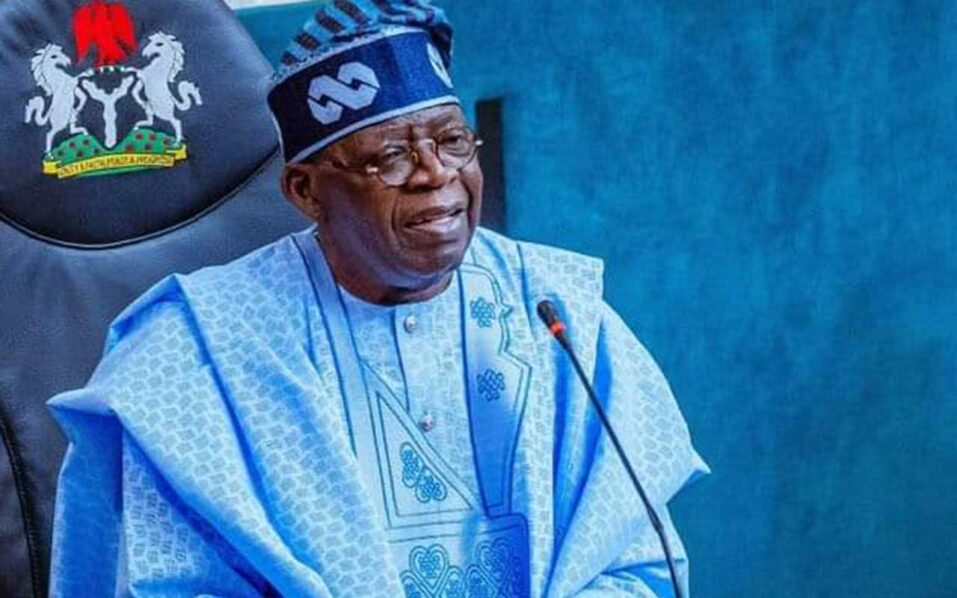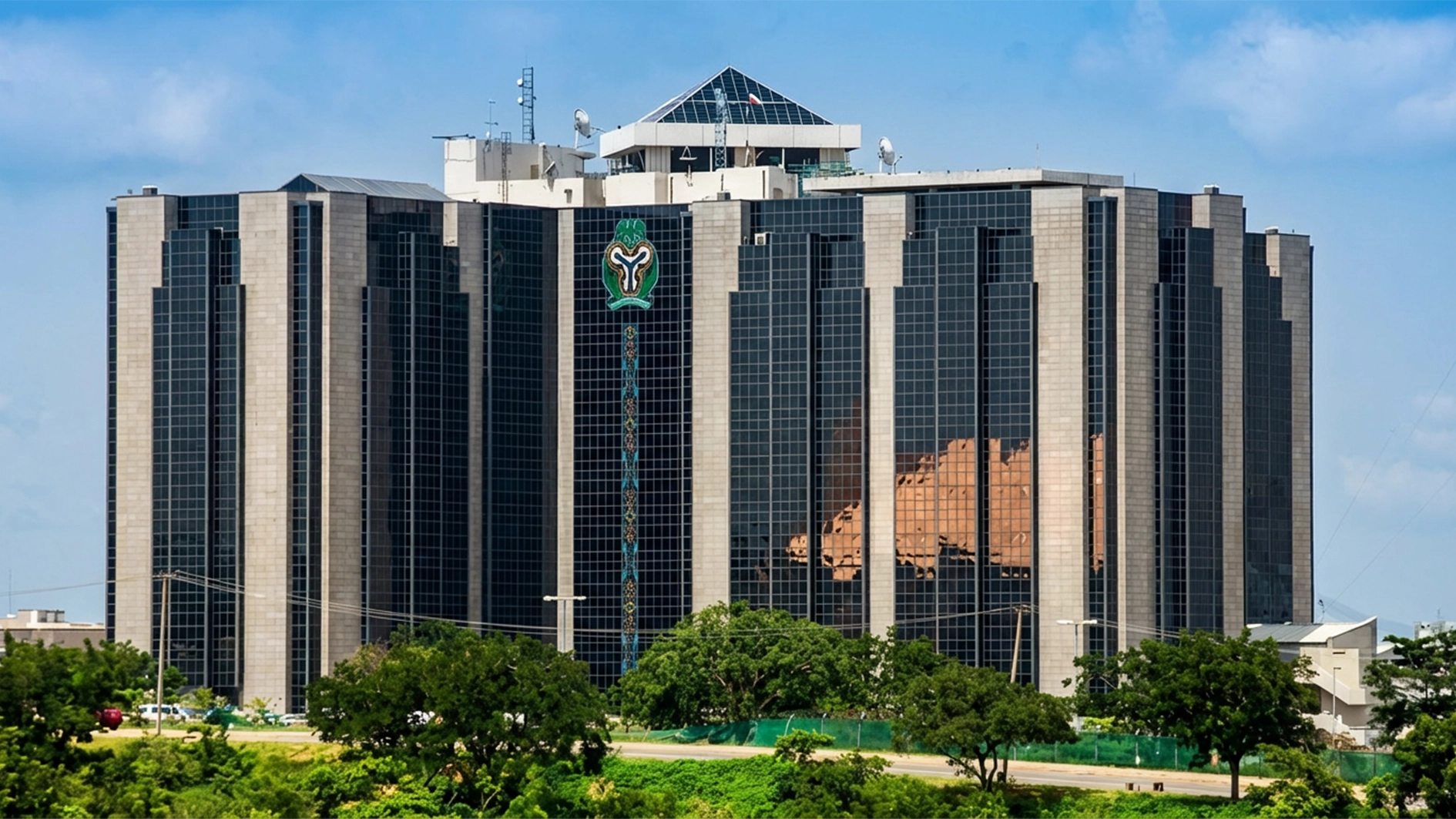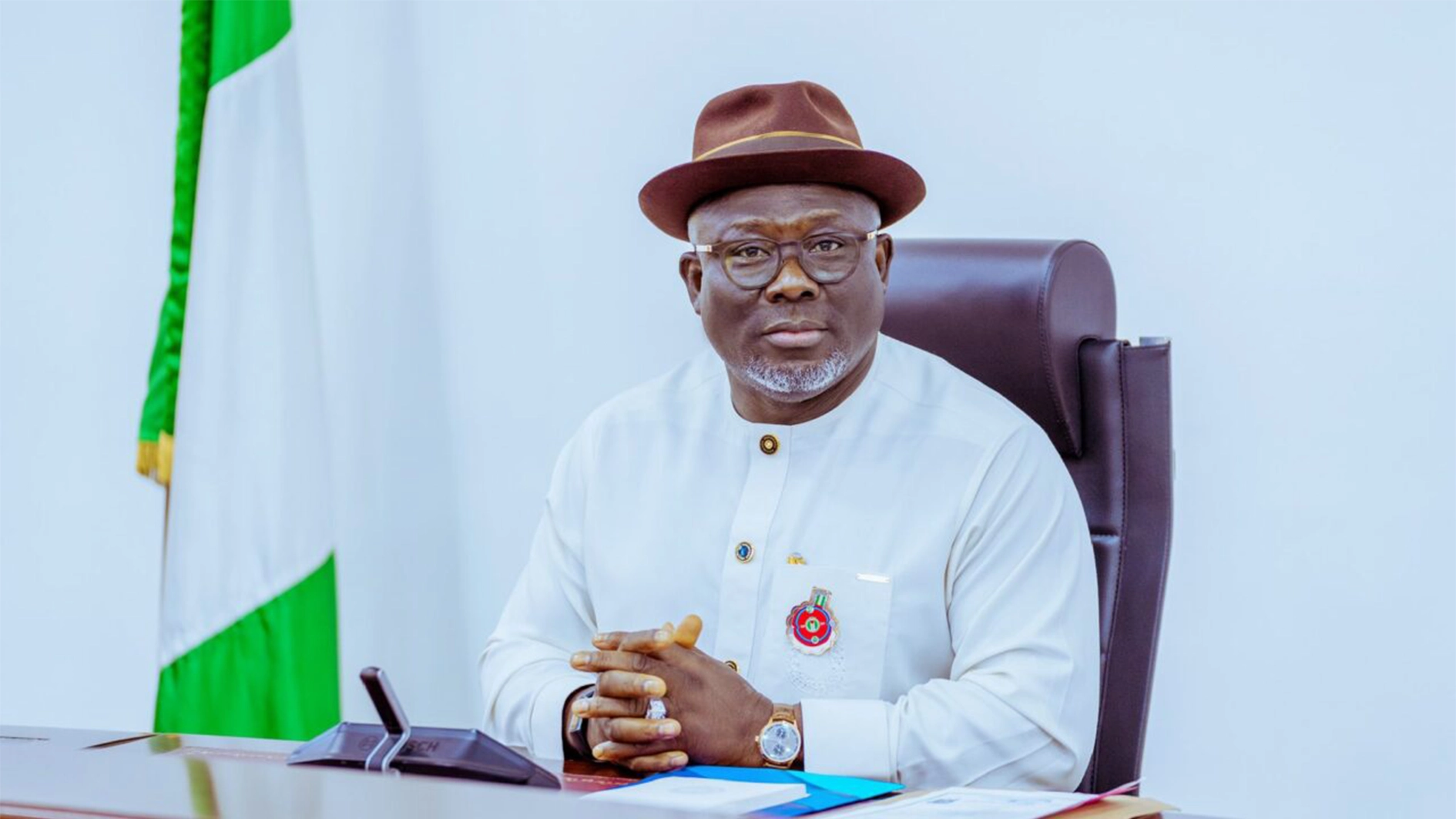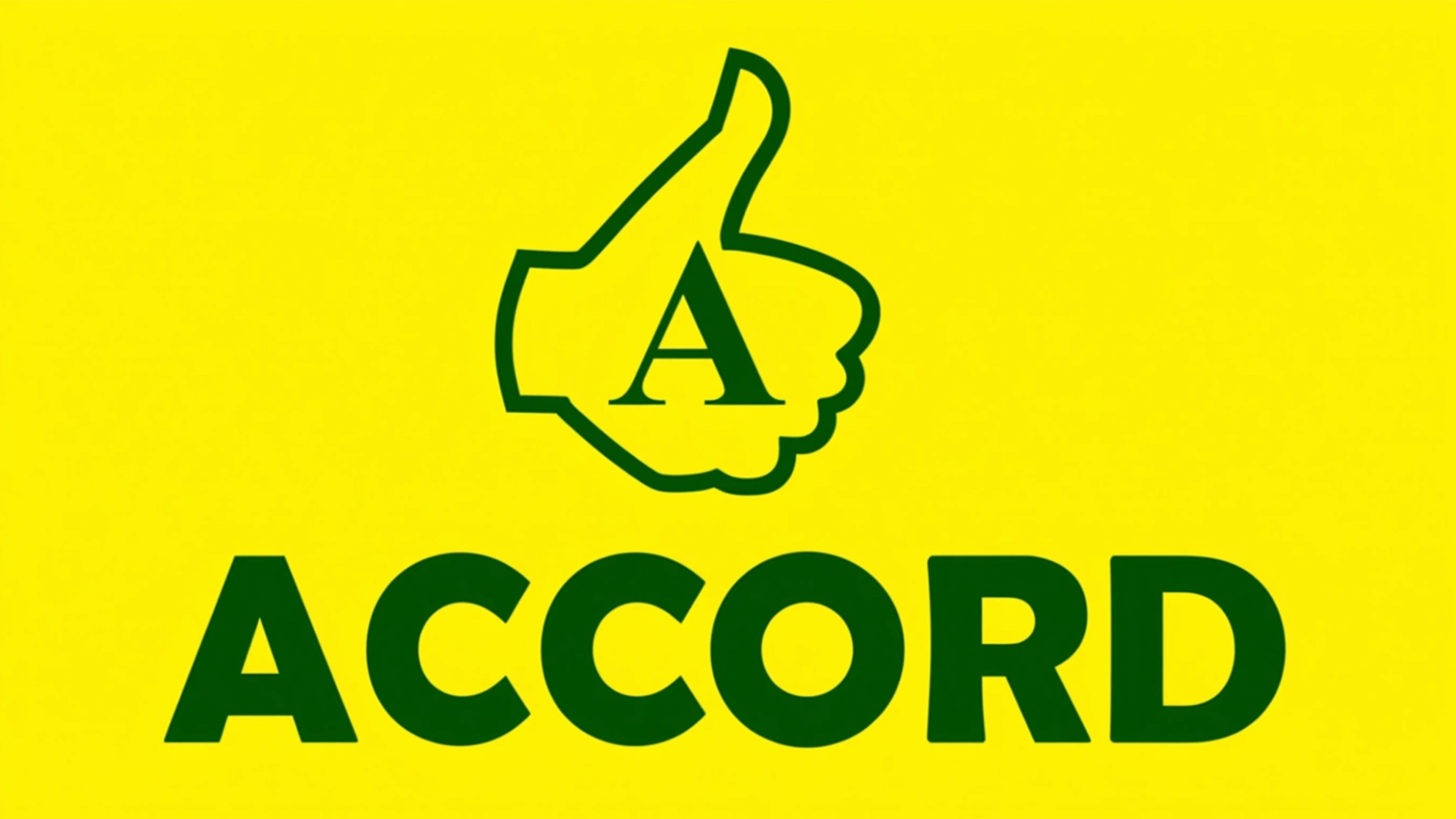
Former Director General of the Progressives Governors Forum (PGF), Malam Salihu Lukman, has expressed concern over the reality that President Bola Ahmed Tinubu is allegedly fast turning into an authoritarian ruler.
Lukman, in a piece titled “Nigeria Democracy in ICU,” argued that the mere fact that we are gradually relapsing back to the era of arbitrary arrests and detentions of journalists, labour leaders, and innocent citizens who express disagreements with governments at all levels is a strong indicator that Nigeria is now a training ground for authoritarian leaders.
Lukman, who is the immediate past national vice chairman North of the ruling All Progressives Congress (APC), noted that reports of state governors ordering the arrest of citizens for expressing disagreements underline the sad reality of the situation in the country.
He argued that the ongoing dispute between the management of Dangote Refinery and the Nigerian National Petroleum Corporation Limited (NNPCL) over the pricing of petroleum products speaks volumes of government indifference to the plight of Nigerians.
“The econometrics of petroleum pricing since the commencement of production of Dangote Refinery is more about manipulative control and imposition of a parasitic monopoly, which the NNPC represents. Unfortunately, for whatever reasons, that appears to be the preference of the government,” he said.
“As it is, the issue of the welfare of citizens is not the priority of President Asiwaju Tinubu. It is almost as if President Asiwaju Tinubu doesn’t give a damn about whether Nigerians are dying on account of the government’s heartless and mindless policies. Rather than push public policy in a direction that relieves the economic burden of harsh living conditions, the Federal Government is more bent on imposing more stringent measures that drain and devalue the resources of citizens.
“More than any time in the history of Nigeria, citizens are being impoverished on an alarming scale. Since May 29, 2023, when President Asiwaju took over, it has been a downward slide for Nigerians.”
He remarked that all previous military regimes, including that of Gen. Sani Abacha, have turned out to be much more open to consultations and receptive to recommendations from Nigerians than the government of President Tinubu.
The Kaduna-born politician contended that the Minna closed-door meeting of former military rulers, Olusegun Obasanjo, Ibrahim Babangida, and Abdulsalami Abubakar, attests to the fact that power brokers in the country are not comfortable with President Tinubu’s style of leadership.
Justifying his position, he noted: “Under a so-called regime of Renewed Hope, citizens are rendered helpless. A supposedly progressive government and party are taking Nigeria back to a Hobbesian state where life is ‘solitary, poor, nasty, brutish, and short.’ Human life has very little value, so much so that it is arguably not the priority of government to guarantee survival and protection of citizens.
“Existential crisis has caught up with even the income-earning population, and governments at all levels are demonstrating both a lack of commitment and inability to respond to the urgency of rescuing the country.
“No doubt, Nigerians are faced with the hardest of times. In the circumstances, it is legitimate for all leaders who mean well for the country to be worried. Ideally, if President Asiwaju Tinubu were accessible and receptive to recommendations, leaders such as former President Obasanjo, former Military President Babangida, former Head of State General Abdulsalam, and General Gusau would have prioritised meeting him.
“Perhaps, the fact that they are meeting just about a month after the meeting of the National Council of State, where a vote of confidence was passed on President Asiwaju Tinubu, is suggestive of possible disappointment arising from the seeming inability of the government to reverse the current downward slide and protect the lives and livelihoods of Nigerians.
“It also needs to be stressed that the mere fact of a so-called vote of confidence by the National Council of State is indicative and suggestive of a growing legitimacy crisis facing the government. In many respects, it is disrespectful and demeaning for a critical constitutional body comprising former Presidents, former Heads of State, and former Chief Justices to be reduced to moving confidence votes when the country is faced with an existential crisis.
“Clearly, the September 15th meeting of these leaders could have been to fill gaps, which the August 13th National Council of State meeting would have inadvertently created. What could have been the gaps?
“One of the big gaps that is constantly staring Nigerians in the most uncomfortable way is the demobilisation and destruction of democratic structures in the country, which would have ordinarily facilitated consultations with elected leaders and influence policy decisions of governments at all levels.
“The absence of any functional party, whose structures are meeting as provided by their constitutions, is enough evidence. All the so-called big parties don’t hold meetings of their organs. The APC is now more of a private limited liability company owned by President Asiwaju Tinubu. PDP, LP, NNPP, and many of the registered parties are all faced with avoidable leadership crises that have strangulated them and are blocking them from holding meetings.
“With all these, citizens are denied options and the capacity to produce alternative choices. Even the right to register new parties is being blocked seamlessly by INEC. With meetings not holding and opposition political leaders manipulated into terminal crisis, Nigerian democracy is in Intensive Care Unit (ICU) with no doctor to attend to. Could former President Obasanjo, former Military President Babangida, former Head of State Abdulsalam, and retired General Gusau be the ‘doctors’ needed to get Nigeria out of the ICU? If so, how can they achieve that?
“Former President Obasanjo, former Military President Babangida, former Head of State Abdulsalam, and retired General Gusau are certainly leaders in their own rights who have paid their dues. At different times in the political history of Nigeria, they were able to intervene. Arguably, their interventions may have, in one way or another, contributed to getting Nigeria to its current messy situation.
“For instance, the political practices that are responsible for the erosion of political competition in political parties in Nigeria could be traceable to the tenure of former President Obasanjo. The policy of Structural Adjustment Programme (SAP) under former Military President Babangida could have been the source of inspiration for President Asiwaju Tinubu’s impulsive and unplanned policies. Although, to be fair to former Military President Babangida, to use Chidi Amuta’s words, he ‘balanced compassion and hard policy choices.’
“To the extent of contributing to getting Nigeria to the current messy situation, these leaders owe a responsibility to the nation to take it out of the ICU. Getting Nigerian democracy out of the ICU is a function of the ability to revive, restore, and strengthen democratic structures in the country, which is dependent on the ability to create at least a functional political party that would allow for political competition within its structures and, by extension, in the country.
“This should not just be about identifying and promoting a candidate who will emerge as a candidate in any of the registered parties. Once the approach is limited to producing a candidate, the potential of falling into a legal booby trap imposed by the manipulative activities of President Asiwaju Tinubu and APC is high. Part of the legal booby trap is that the potential candidate may be produced by a leadership faction of a political party, which will throw the party and the candidate into court cases that will undermine electoral viability.
“The other challenge is that producing a candidate may not guarantee corresponding commitment by elected leaders to honour their campaign promises and be accountable to Nigerians. For elected leaders to come with a corresponding commitment to honour campaign promises and be accountable to Nigerians requires the existence of a strong political party whose organs will meet as prescribed by the party’s constitution.
“Above all, the profile of the leadership of the party should be at the minimum equivalent to the elected leadership of the country. A situation whereby party leadership is below the profile of elected leaders is injurious to Nigerian democracy and will retain it in the ICU.
“Therefore, if former President Obasanjo, former Military President Babangida, former Head of State Abdulsalam, and retired General Gusau are truly committed to rescuing Nigerian democracy and getting it out of the ICU, they should facilitate a deeper engagement of opposition political leaders in the country.
“Part of the goal of the deeper engagement of opposition leaders should be to rebuild structures of political parties in the country and restore some minimum internal political competition within the structures of political parties. Beyond anything, this will help to reset Nigerian democracy, restore the confidence of Nigerians about surviving the current hard times imposed by the impulsive, unplanned, and undemocratic policies of President Asiwaju Tinubu.”






